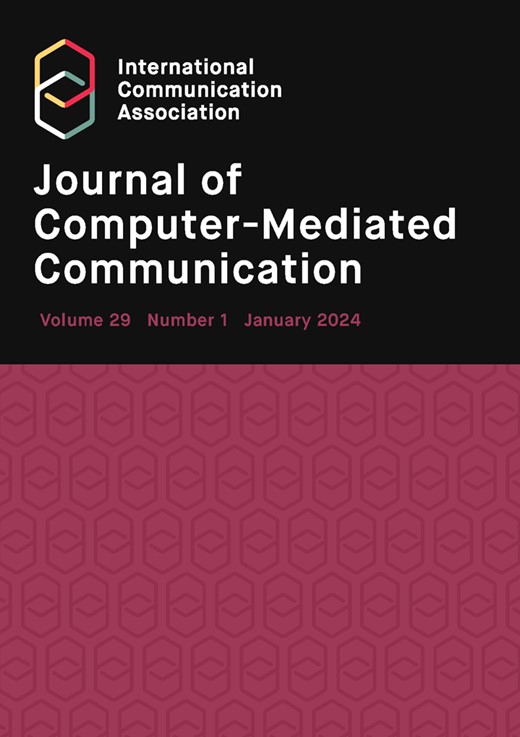Standing up to problematic content on social media: which objection strategies draw the audience’s approval?
IF 5.7
1区 文学
Q1 COMMUNICATION
引用次数: 0
Abstract
Problematic content on social media can be countered through objections raised by other community members. While intended to deter offenses, objections can influence the surrounding audience observing the interaction, leading to their collective approval or disapproval. The results of an experiment manipulating seven types of objections against common types of offenses indicate audiences’ support for objections that implore via appeals and disapproval of objections that threaten the offender, as they view the former as more moral, appropriate, and effective compared to the latter. Furthermore, audiences tend to prefer more benign and less threatening objections regardless of the offense severity (following the principle of “taking the high road”) instead of objections proportionate to the offense (“an eye for an eye”). Taken together, these results show how objections to offensive behaviors may impact collective perceptions on social media, paving the way for interventions to foster effective objection strategies in social media discussions.抵制社交媒体上的问题内容:哪些反对策略能得到受众的认可?
社交媒体上有问题的内容可以通过其他社区成员提出的反对意见来抵制。虽然反对的目的是阻止违规行为,但也会影响周围观察互动的受众,导致他们集体赞同或反对。一项针对常见犯罪类型的七种反对意见的实验结果表明,受众支持通过呼吁进行恳求的反对意见,不支持威胁犯罪者的反对意见,因为他们认为前者比后者更道德、更恰当、更有效。此外,无论违法行为的严重程度如何,受众都倾向于选择更温和、威胁性更小的反对方式(遵循 "高处不胜寒 "的原则),而不是与违法行为成正比的反对方式("以牙还牙")。综上所述,这些结果表明了对冒犯行为的反对如何影响社交媒体上的集体认知,为在社交媒体讨论中采取有效的反对策略铺平了道路。
本文章由计算机程序翻译,如有差异,请以英文原文为准。
求助全文
约1分钟内获得全文
求助全文
来源期刊
CiteScore
9.60
自引率
2.80%
发文量
26
期刊介绍:
The Journal of Computer-Mediated Communication (JCMC) has been a longstanding contributor to the field of computer-mediated communication research. Since its inception in 1995, it has been a pioneer in web-based, peer-reviewed scholarly publications. JCMC encourages interdisciplinary research, welcoming contributions from various disciplines, such as communication, business, education, political science, sociology, psychology, media studies, and information science. The journal's commitment to open access and high-quality standards has solidified its status as a reputable source for scholars exploring the dynamics of communication in the digital age.

 求助内容:
求助内容: 应助结果提醒方式:
应助结果提醒方式:


